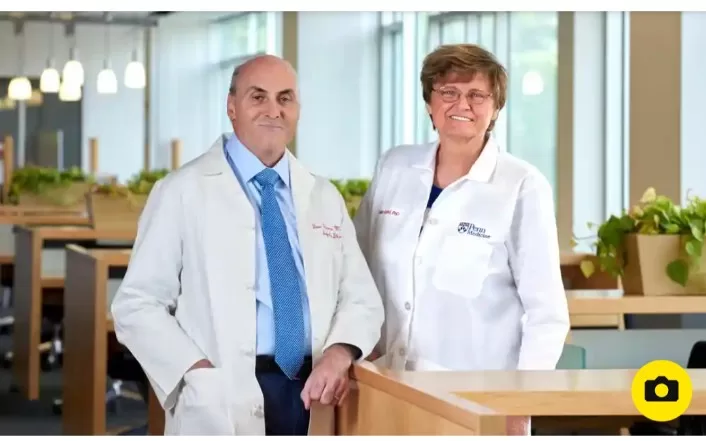Two distinguished scientists, Professor Katalin Karikó and Professor Drew Weissman, have been honored with the prestigious 2023 Nobel Prize in Physiology or Medicine. Their groundbreaking contributions to the field of RNA biology played a pivotal role in the rapid development of mRNA vaccines during the challenging COVID-19 pandemic.
This esteemed recognition, accompanied by a prize of 11 million Swedish kronor (£823,000), was officially announced by the Royal Swedish Academy of Sciences in Stockholm on Monday.
The Nobel committee commended these exceptional scientists for their groundbreaking discoveries in “nucleoside base modifications that enabled the development of effective mRNA vaccines against Covid-19.” These mRNA vaccines function by delivering genetic instructions for producing viral proteins into our cells, thereby empowering our immune systems to combat the virus.
Notably, a significant hurdle in the development of such vaccines was the occurrence of inflammatory reactions triggered by early prototypes of synthetic mRNAs, rendering them unsuitable for medical use. However, the collaborative efforts of Professors Karikó and Weissman proved instrumental. They ingeniously modified the mRNA molecules through precise chemical adjustments, not only quelling unwanted inflammatory responses but also substantially enhancing the production of the target protein. This transformative approach served as the foundation for the Pfizer and Moderna vaccines, which have been instrumental in mitigating the COVID-19 pandemic.
Professor John Tregoning, a vaccine immunologist at Imperial College London, praised their work, stating that it “increased the efficiency of the vaccination: more response for less RNA.” Professor Robin Shattock, also at Imperial College London, emphasized the enduring significance of these discoveries for future RNA vaccines and RNA-based medicines.
Professor Katalin Karikó, who serves as a research professor at the University of Szeged in Hungary and an external consultant to BioNTech in Germany, expressed her overwhelming gratitude upon receiving the Nobel Prize. Her journey was marked by decades of skepticism and challenges, including a demotion by the University of Pennsylvania in the mid-90s due to funding difficulties. Nevertheless, she remains an adjunct professor at the university’s Perelman School of Medicine.
Karikó’s path from a small town in central Hungary, where her family endured a humble existence without basic amenities, to becoming a renowned scientist is a testament to her determination and dedication. She sold her car and sewed the money into her daughter’s teddy bear to fund her family’s move to Philadelphia, USA. It was there that she crossed paths with Professor Drew Weissman, currently a professor of vaccine research at the Perelman School of Medicine. Their collaboration began as they explored the potential of mRNA as a therapeutic, with Weissman initially providing the funding for their research.
The modified mRNA technology developed by Karikó and Weissman was licensed by BioNTech and Moderna for their vaccines. Furthermore, Professor Weissman has continued to work on RNA vaccine candidates targeting diseases such as flu, herpes, and HIV.
Speaking at the Nobel Prize announcement in Stockholm, Professor Gunilla Carlsson, the chair of the Nobel committee, underscored the critical role played by their discovery in rapidly adapting the mRNA vaccine platform for clinical use during the early stages of the pandemic, ultimately saving countless lives.
This remarkable achievement by Professors Karikó and Weissman follows previous recognition, including the £2.2 million Breakthrough Prize and numerous other international awards, cementing their legacy as pioneers in the field of RNA biology and vaccine development.







